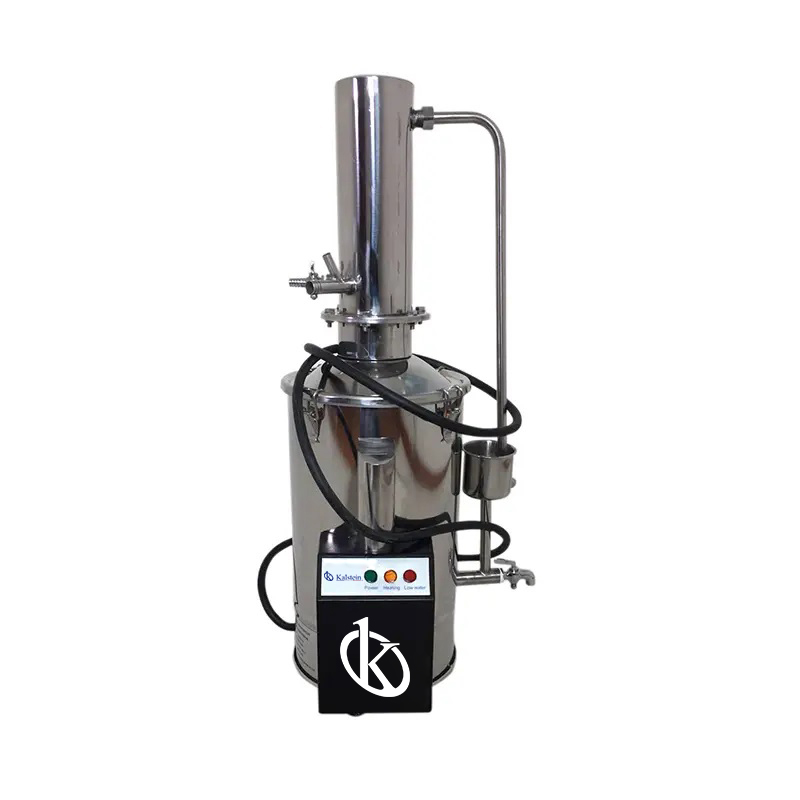Laboratory water distillers provide a valuable resource for the scientific community. They are critical to ensure the accuracy of experiments by providing pure water, essential for a variety of scientific processes and procedures. In contrast, tap water contains a myriad of minerals, bacteria and other contaminants that can alter the results of laboratory experiments.
The use of purified water through laboratory water distillers ensures accuracy and consistency in experiment results, whereas the use of tap water can present uncontrollable variables that alter the reliability of the results. Thus, although tap water is safe for human consumption, laboratory water distillers are indispensable for high-precision research.
From tap water to distilled water: A necessary purification process
Water plays a crucial role in most laboratory experiments, but not all water is equal. Tap water, while safe for human consumption, contains dissolved minerals, bacteria and other components that can adversely affect an experiment and distort the results obtained.
This is precisely where laboratory water distillers come into play. These devices, through a distillation process, remove all traces of impurities and contaminants from the most essential substance in our lives: water, thus ensuring that experiments are performed in a controlled environment and with zero contamination.
Impact of laboratory water distillers on experimental results
Distilled water provided by laboratory water distillers offers a degree of purity not found in tap water. This purified water does not alter the properties of the solutions used in the experiments nor does it affect the overall results.
To make it more explicit, the spectroscopic methods used to determine chemical concentrations are highly dependent on water quality, and the presence of minerals and chemicals in tap water could give false readings. This is where laboratory water distillers are of great relevance to ensure the reliability of experimental results.
In addition, laboratory water distillers also remove any bacteria or microorganisms that may be present in tap water, thus reducing the risk of biological contamination in experiments.
Comparison of results: Distilled vs. tap water
Last but not least, differentiating between the use of laboratory water distillers and tap water in an experiment translates into more consistent and accurate results.
For example, in an experiment involving the creation of an aqueous solution, distilled water will ensure that the solution contains only the desired chemical components. Comparatively, the use of tap water can introduce minerals and other contaminants that can interfere with the solution and alter the results of the experiment.
In summary, the use of laboratory water distillers contributes greatly to accuracy and consistency in research laboratories worldwide.
What we have for you at Kalstein
Laboratory water distillers are essential tools in the scientific world. Although tap water and distilled water may look the same at first glance, the results of laboratory experiments tell a different story.
KALSTEIN simplifies the choices by offering the best deals and quotes. Visit us HERE where you will find the different YR models of water distillers, which are available for any laboratory requirement, besides having the best advisors to accompany you during the purchase process; we besides being manufacturers of laboratory equipment, we have for you a 3D platform, where users, manufacturers and distributors can sell, rent or offer new or used equipment anywhere in the world, enjoy being seen, be more.

